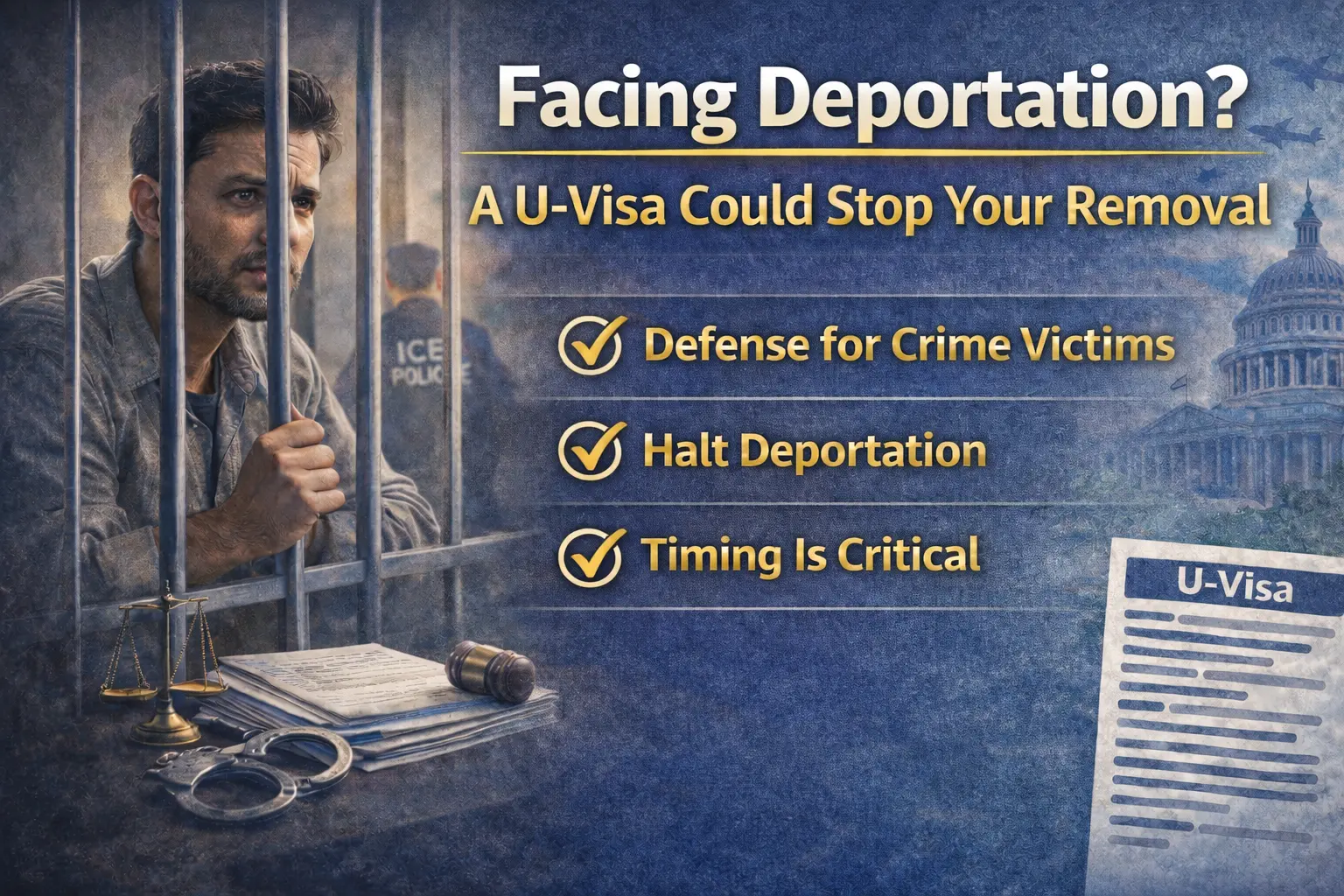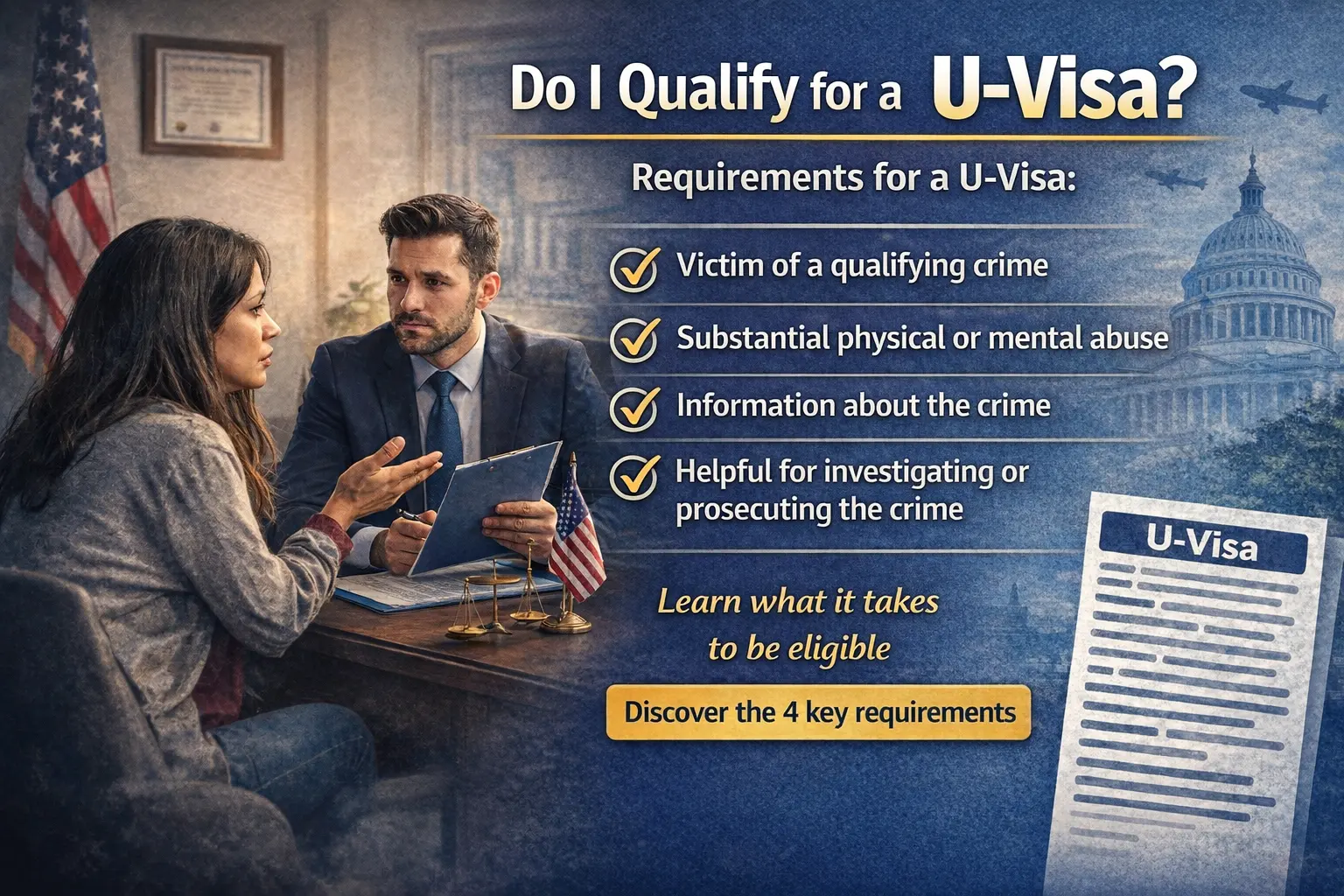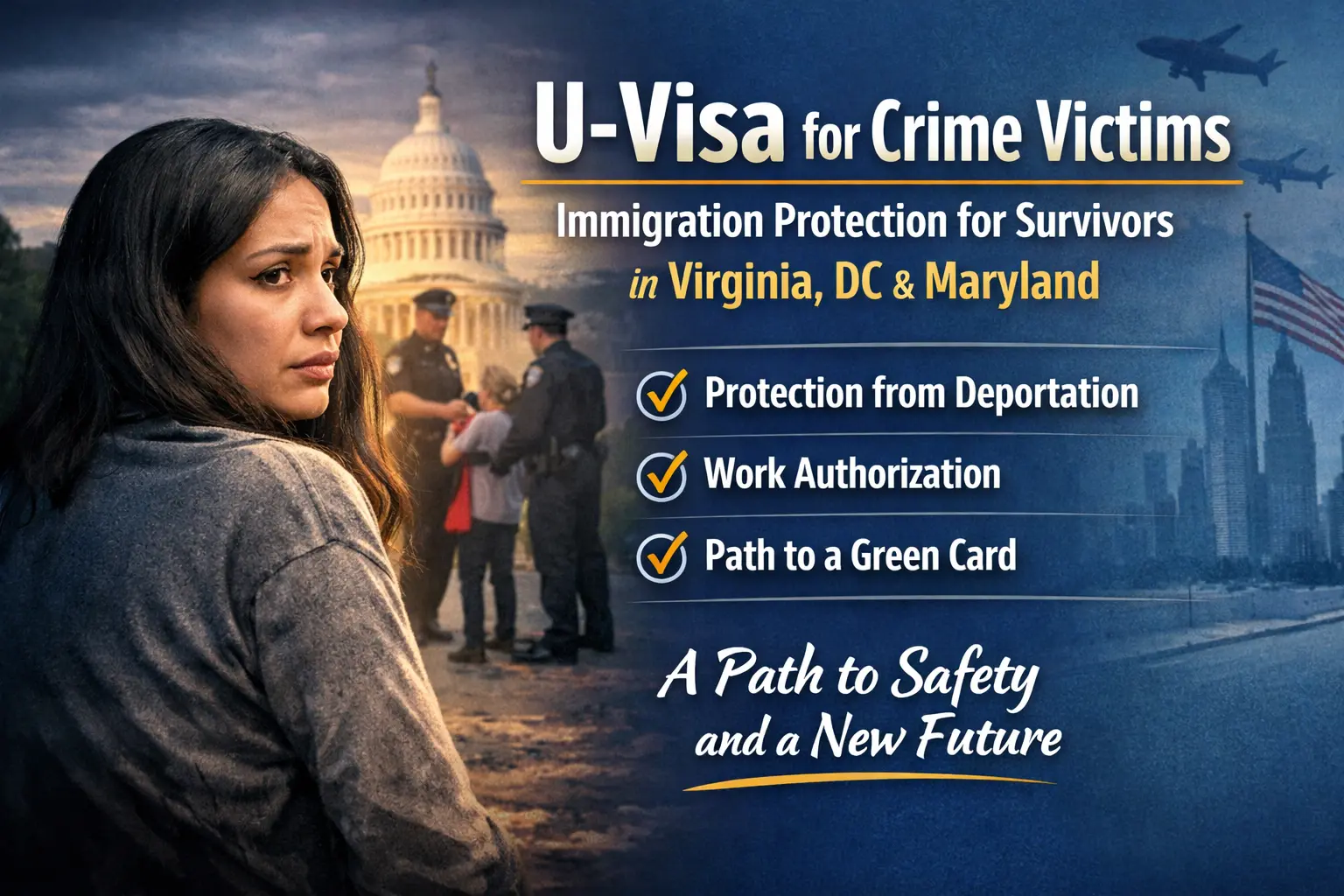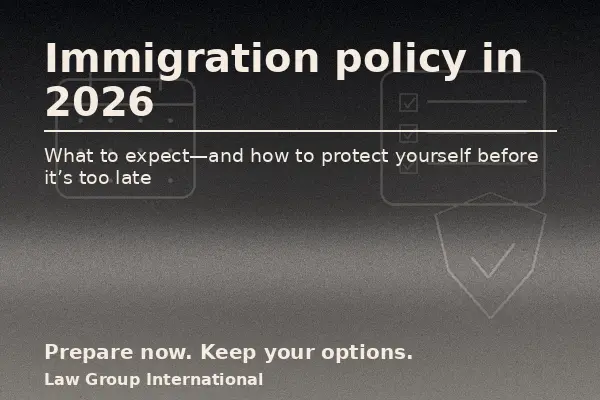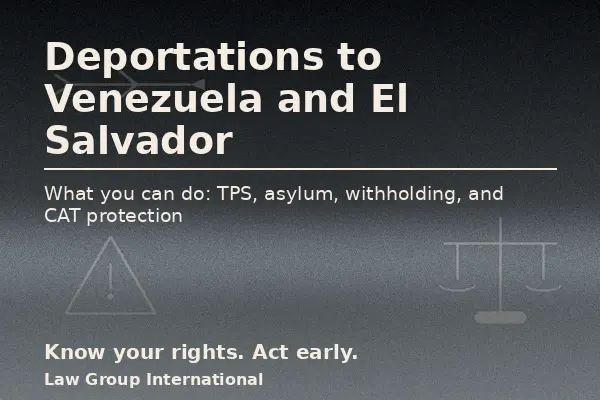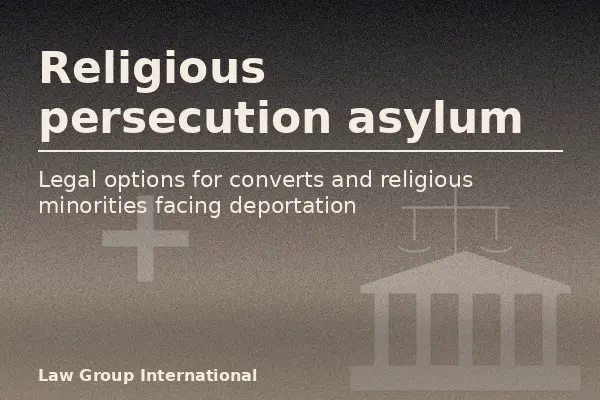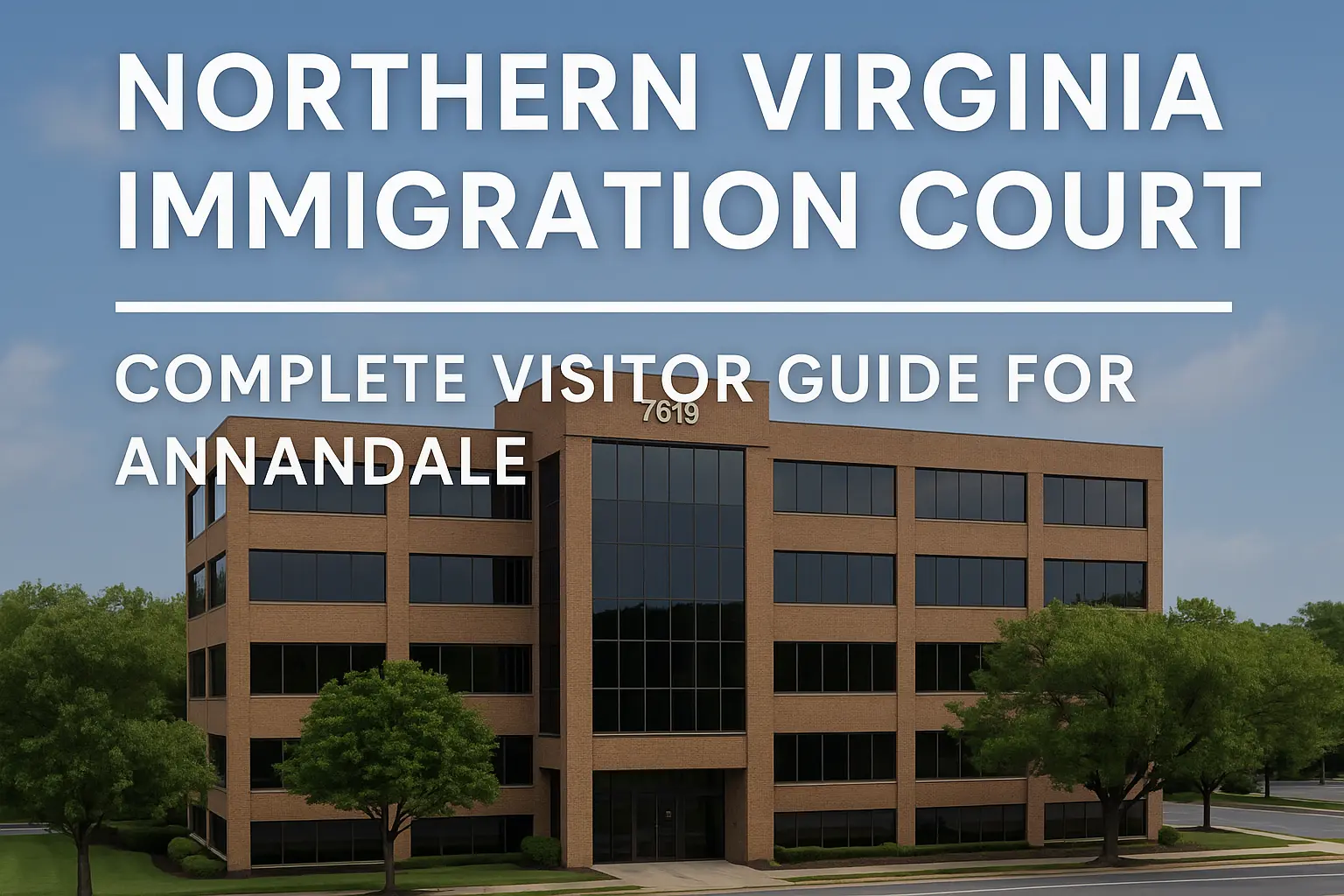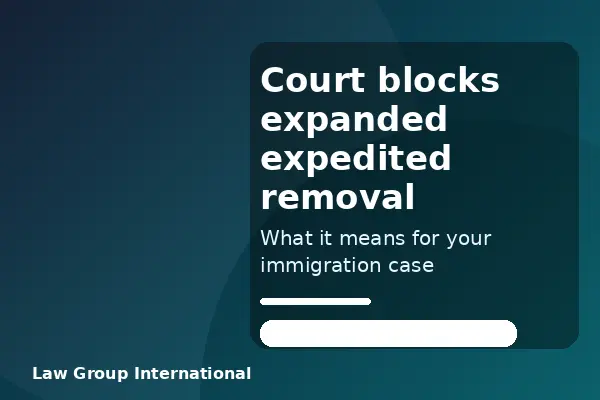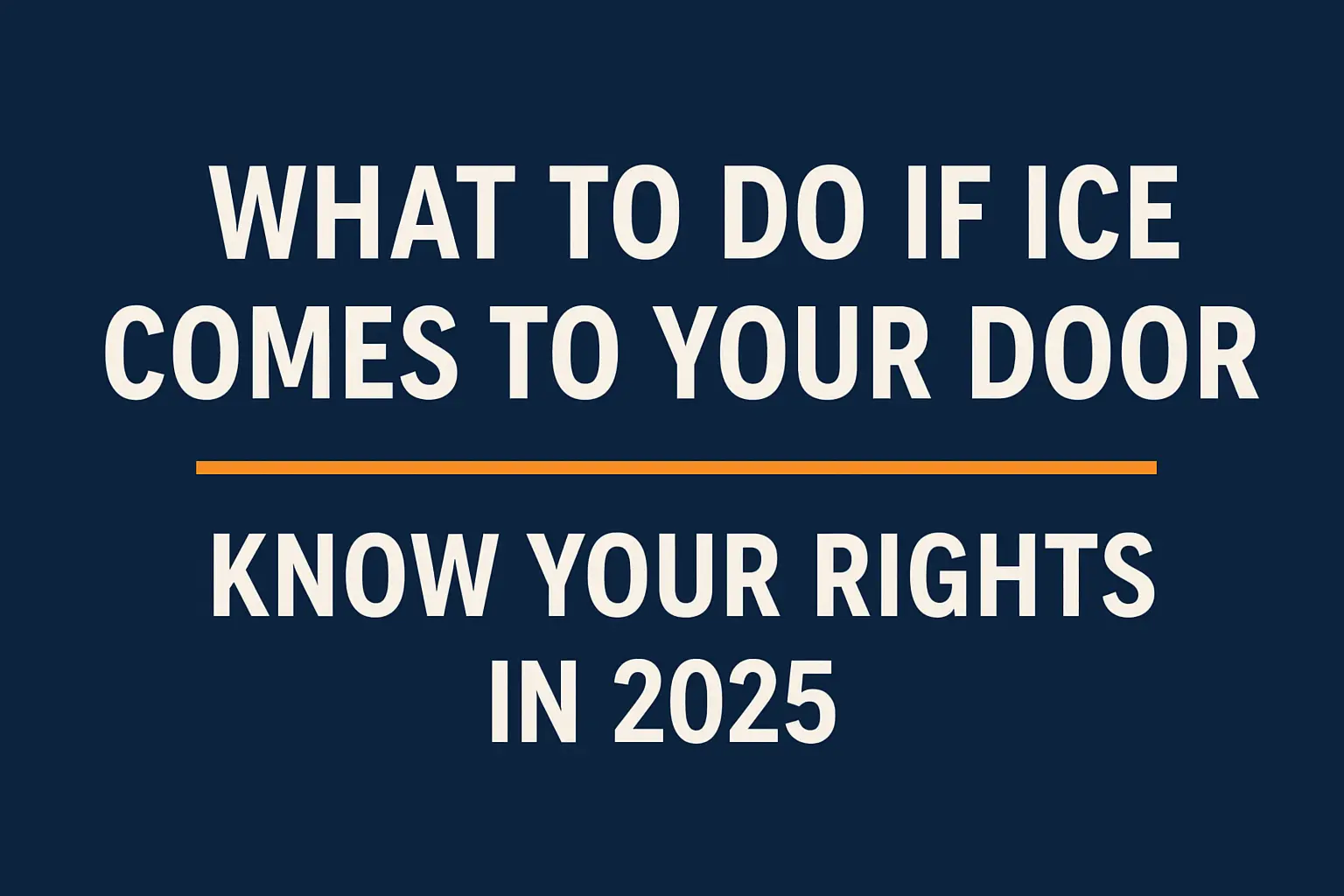Overcoming Inadmissibility: When and How Immigration Waivers Work
Facing inadmissibility can feel like hitting a wall in your immigration journey. Whether due to past immigration violations, fraud, or removal orders, being found inadmissible by U.S. immigration authorities means you may not enter or adjust status without an approved immigration waiver. But here’s the good news: for many, there is a path forward.
In this guide, we explain what inadmissibility means, highlight common grounds that trigger it, and walk through the three main waiver options, I-601, I-601A, and I-212, to help you understand which one might apply to your case and how to strengthen your application.
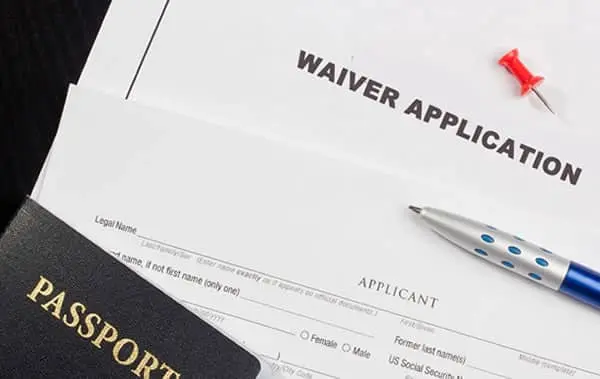
What makes someone inadmissible?
U.S. immigration law outlines several grounds of inadmissibility that can prevent someone from receiving a visa, green card, or re-entering the U.S. These include:
- Unlawful presence: Staying in the U.S. without legal status for 180 days or more may trigger 3- or 10-year bars to reentry.
- Fraud or misrepresentation: Lying to immigration officials or submitting false documents can lead to a lifetime bar.
- Prior removal or deportation: Leaving the U.S. after being removed or deported requires special permission to return.
- Certain criminal convictions: Drug offenses, crimes of moral turpitude, or aggravated felonies may render someone inadmissible.
Learn more from USCIS on inadmissibility grounds.
The Main Waivers Explained
I-601 Waiver for Grounds of Inadmissibility
The I-601 waiver is used by individuals outside the U.S. or applying from within the U.S. who are found inadmissible due to unlawful presence, fraud, or certain crimes. To qualify, you must demonstrate that denying you entry would cause extreme hardship to a U.S. citizen or lawful permanent resident spouse or parent.
- Who can apply: Immigrants abroad or those adjusting status in the U.S. with a qualifying relative.
- Where to file: With USCIS or sometimes at a consulate.
- Processing time: Typically 12–18 months.
Visit USCIS I-601 page for official instructions.
I-601A Provisional Unlawful-Presence Waiver
The I-601A waiver is a specialized version of the I-601. It allows certain immigrants already in the U.S. to apply for a waiver before leaving the country for a consular interview, minimizing family separation.
- Who qualifies: Immediate relatives of U.S. citizens or green card holders who are only inadmissible for unlawful presence.
- Benefits: Apply and get a decision while still in the U.S.
- Note: You still must leave the U.S. for your visa interview.
More at USCIS I-601A page.
I-212 Waiver After Removal
If you’ve been deported or left the U.S. under a removal order, you’re barred from reentry for 5, 10, or 20 years depending on your case. The I-212 waiver is permission to reapply for admission before that time expires.
- Who needs it: Individuals with a prior removal or voluntary departure who want to return legally.
- Can be filed with: I-601 (if both waivers are needed).
Details on the USCIS I-212 page.
Proving Extreme Hardship: Evidence Checklist
To win an immigration waiver, showing extreme hardship is often key. USCIS does not define it as normal hardship, it must go beyond typical difficulties. Strong applications include:
- Medical records: If a qualifying relative has a serious illness.
- Financial documentation: Showing dependence on the applicant.
- Country condition reports: Demonstrating risks in the applicant’s home country (e.g., violence, lack of medical care).
- Psychological evaluations: Stress or trauma caused by separation.
- Educational impacts: For U.S. children’s schooling or services.
See the AILA extreme hardship advisory for more.
Filing Timeline, Costs, and Processing Tips
- Filing fees:
- I-601: $930
- I-601A: $715
- I-212: $930
- Timeline:
- Preparing documentation: 2–3 months
- USCIS processing: 12–18 months (can vary by case)
- Tips:
- Respond promptly to Requests for Evidence (RFEs).
- Keep copies of all submitted forms and supporting documents.
- Track your case at USCIS.gov.
Professional Help From Law Group International
A waiver case is more than paperwork, it’s a legal argument backed by evidence. The attorneys at Law Group International routinely craft hardship arguments that meet USCIS’s stringent standards, dramatically improving approval chances. Our support includes:
- One-on-one strategy sessions to select the best waiver approach
- Document checklists tailored to your case
- Attorney cover letters framing the legal and personal case
- Translation, country research, and affidavit guidance
Start Your Waiver Journey Right
Being found inadmissible doesn’t have to be the end of your immigration journey. With the right immigration waiver, and proper preparation, you may still qualify to enter or remain in the United States.
At Law Group International, we’re committed to helping you navigate these complex waiver options with care and precision. If you’re unsure which waiver applies or how to begin, don’t wait. Contact our team today for a personalized consultation, and take the first step toward overcoming inadmissibility.
Explore More Immigration Topics
VAWA Immigration: Protection for Victims of Domestic Violence
January 28, 2026
U-Visa and Deportation: How This Visa Can Save Your Case
January 19, 2026
U-Visa requirements 2026: Complete eligibility guide
January 13, 2026
Immigration Policy in 2026
January 1, 2026
Deportations to Venezuela and El Salvador
December 31, 2025
Religious Persecution Asylum
December 30, 2025
Northern Virginia Immigration Court
December 20, 2025
Federal Court Blocks Expanded Rapid Deportations
December 16, 2025
What to Do If ICE Comes to Your Door
December 14, 2025


